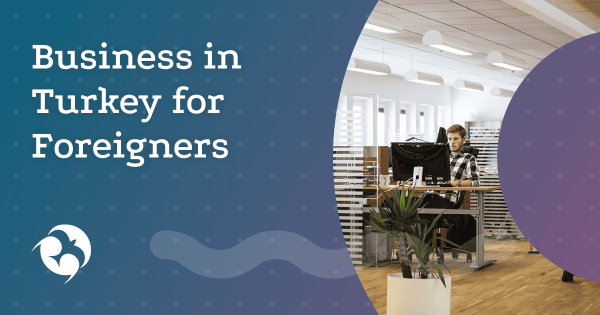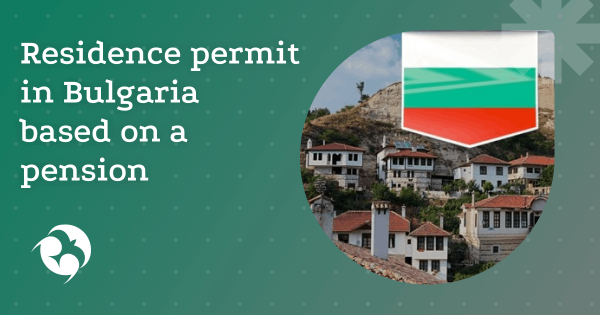A German passport gives foreigners the opportunity to live in the European Union, travel without a visa to 191 countries, receive excellent education and high-quality medical services. The state does not offer citizenship for investment, but the path to a German residence permit and passport is open to a large number of qualified specialists of various profiles. Since June 27, 2024, it is allowed to have a second citizenship in Germany, and this government decision has made the country even more popular among foreigners. The period of obtaining a passport due to naturalization has also been reduced from 8 to 5 years for most categories of visitors. Foreign citizens wishing to move to Germany can apply for a freelancer visa, a chance card, a Blue card, get a job at a German company, or consider participating in a Transfer program.
Freelance visa
High-earning digital nomads who are employed outside Germany and perform their professional duties remotely can receive a Freelancer-Visum or a “freelancer residence permit” for a period of 3 months with the possibility of extension up to 3 years. In 2025, there are 2 types of such visas available: Selbständiger (individual entrepreneurs) and Freiberufler (employees employed outside the EU). A foreigner with any of these statuses must have at least two clients from Germany.
Selbständiger – basic requirements for candidates
| Criterion | Requirements | Notes |
| Age | At least 18 years old | Required |
| Education | Higher education or professional qualification | In the relevant business area |
| Work experience | Minimum 2 years | In the relevant field |
| Financial viability | Sufficient capital to start and run a business | Own assets or creditors’ guarantees |
| Medical insurance | Availability of health insurance | Covering your stay in Germany |
| Pension provision | Pension plan | Mandatory for persons over 45 years old |
| Economic impact | Positive economic impact on the German market | Business should benefit Germany |
| Language proficiency | Basic knowledge of German | Desirable, but not necessary |
| Business plan | Convincing and detailed | Proving the viability of a business idea |
Freiberufler – basic requirements for candidates
| Criterion | Requirements | Notes |
| Age | At least 18 years old. A mandatory pension plan is available for people over the age of 45. | The pension plan must cover at least 5 years. |
| Education | Higher education or a professional qualification recognized in Germany. | Regulated professions (doctors, lawyers) require a license. |
| Work experience | At least 2 years in the relevant field. | It is confirmed by employment contracts or recommendations. |
| Financial viability | Income of at least 2,500 €/month. or a deposit of 12,000€. | For families, the amount increases to 18,000€. |
| Medical insurance | A policy with a minimum coverage of 30,000€. | Required for all applicants. |
| Clients/employers | Minimum 2 long-term contracts with clients/companies outside the EU. | Contracts must be concluded before the application is submitted. |
| Documents | Letters from clients, portfolios, translated diplomas, bank statement. | A portfolio is required for creative professions. |
| Language proficiency | Basic German (A1) or English (B1). | Not necessarily, but it increases the chances of approval. |
| Pension plan | Required for applicants over 45 years of age. | The minimum amount of savings is 10,350 €/year. |
The main advantage of the German digital nomad visa is the lack of strict financial security requirements for visitors under the age of 45. To get freelance status, you need to deposit enough money into a bank account to rent a home and cover basic living needs. A national D visa (Einreise-Visum) is required to enter Germany. The possibility of moving together with close relatives is not provided. After 3 years of stay on Freelancer-Visum, you can request a residence permit.
To obtain a freelance residence permit in Germany, you do not need to confirm the receipt of money from remote work, but you must demonstrate employment in a company outside the EU. Of the financial guarantees, the authorities will be satisfied with the amount of € 13,092 in the bank account. According to lawmakers, this is enough for a foreigner under the age of 45 to rent an apartment and cover the cost of living. Older freelancers show income of 1,503euros per month, considered retirement savings, or documents on property ownership in the amount of 216,481 euros.
The process of obtaining a Freelancer-Visum looks like this:
- Entry on a Schengen visa.
- Make an appointment with the migration service of the Foreign Office or Ausländerbehörde.
- Search for an apartment for rent and register an agreement with the Burgeramt.
- Registration with the tax service.
- Opening a bank account.
- Purchase of medical insurance for 30,000€.
- A visit to the Foreign Office or Ausländerbehörde with documents.
- Payment of the fee for the production of a residence permit card.
- Obtaining a temporary resident’s card.
Comparison of Selbständiger and Freiberufler visas
To choose the right type of visa, it is important to understand the key differences between Selbständiger and Freiberufler:
| Criterion | Selbständiger | Freiberufler |
| Target audience | Entrepreneurs who want to start a business | Representatives of the “liberal professions” |
| Types of activities | Commercial activity, trade, production | IT specialists, artists, architects, translators, doctors, etc. |
| The difficulty of obtaining | More complex | Relatively simpler |
| Document requirements | Detailed business plan, financial forecasts | Proof of qualifications, portfolio |
| Registration | In Gewerbeamt | Registration in Gewerbeamt is not required |
| Taxation | Subject to trade tax (Gewerbesteuer) | Trade tax exemption |
| Membership in IHK (employment agency) | Required | Not required |
Chance Card
Chancenkarte (“Chance Card”) is a relocation program to Germany for qualified professionals who do not have job offers from specific German companies. After obtaining the status, it is easier for a foreigner to integrate into the local labor market. He has the right to legally stay in the country for a period sufficient to find a job. The Chancenkarte is issued for 1 year and extended for a similar period.
The main requirement for candidates to receive a “Chance Card” is that the diploma of education meets the criteria of the Anabin system from the Zentralstelle für ausländisches Bildungswesen or a set of 6+ points in the system for assessing the professional prospects of a foreigner. Additionally, you must be proficient in German at A2 level or English at B2 level.
Here are the criteria for evaluating applicants:
- recognition of the profession (4 points);
- work experience in the specialty indicated in the diploma, from 5 years (3 points);
- age up to 35-40 years (1-2 points);
- German language proficiency level from B1 (2-3 points);
- experience of living in Germany for at least six months without a tourist visa (1 point);
- prospective marriage partner: age, education level, German proficiency, work experience (1 point).
Requirements for candidates
| Criterion | Requirements | Notes |
| Age | At least 18 years old. Points are awarded for those under the age of 35. | Under 35 years – 2 points. Over the age of 45, you must confirm your pension plan. |
| Education | University diploma recognized in Germany (Anabin database), or 2 years of professional training. | If the diploma is recognized, the point system is not applied. Recognition of diplomas has been simplified for IT specialists and engineers. |
| Financial viability | Minimum €12,324 on a blocked account (Sperrkonto) or a guarantee (Verpflichtungserklärung). | A part-time contract is allowed (up to 20 hours/week) as proof of income. |
| Language proficiency | German A1 or English B2 (if the diploma is not recognized). | For creative professions (artists, musicians), language requirements are relaxed if you have a portfolio. |
| Work experience | 2 years in the last 5 years (2 points) or 5 years in the last 7 years (3 points). | Experience is confirmed by employment contracts or recommendations. |
| Point system | Minimum of 6 points from the criteria. Age (up to 3 points); Language (up to 3 points); Experience (up to 3 points); Ties with Germany (up to 2 points); Qualifications (up to 4 points). | Points are not required if the diploma is recognized in Germany. |
| Employment | Part-time work is allowed for up to 20 hours/week and trial work for up to 2 weeks. | Trial work (up to 40 hours/week) allows you to sign a long-term contract. |
| Length of stay | Up to 1 year with the possibility of extension. | After employment, the visa is converted into a working residence permit. |
| Family circumstances | Family reunification is not provided. The spouse/children apply separately. | Children require separate financial support (additional 409 €/month per child). |
Language skills are confirmed by the Goethe-Institut certificate or Toefl/IELTS. It is also necessary to show the amount of € 13,092 on the blocked bank account and buy medical insurance. Moving with relatives is not expected. The approximate deadline for issuing the “Chance Card” is up to 4 months, excluding the time for recognition of the diploma of education and waiting for admission at the German consulate.
Work visa
The document is a long-term national D visa. It is issued to foreigners who are employed by German companies and earn at least an average income in their profession. In order for an organization in Germany to hire a passport holder from another country, it needs to prove to the authorities that the right specialist has not been found in the local market. This process is easier for qualified and highly qualified foreigners. You can search for vacancies on aggregator sites or send resumes directly to companies. It is important to understand that interviews with employers will be conducted in German. Therefore, the level of proficiency should be above average (B2+).
The advantage and distinctive feature of a work visa to Germany is the opportunity to move with your family, which is inaccessible to freelancers and holders of Chancenkarte. If a foreigner plans to take a marriage partner and minor children with him, then he must demonstrate in a bank account an amount sufficient to cover the basic living needs of his relatives.
Requirements for candidates
| Criterion | Requirements | Notes |
| Age | At least 18 years old. A mandatory pension plan is available for people over the age of 45. | The pension plan must cover at least 5 years. People under the age of 35 are awarded points in the Chancenkarte system. |
| Education | Higher or professional education recognized in Germany. | Diploma recognition has been simplified for IT specialists and engineers. Creative professions (artists, musicians) can do without a portfolio. |
| Work experience | 2 years in the last 5 years (skilled workers) or 5 years in 7 years (highly skilled). | It is confirmed by employment contracts, recommendations, or portfolios. |
| Financial viability | Minimum €12,324 on a blocked account (Sperrkonto) or a guarantee. | For a job search visa – 1,091 €/month. For a family, the amount increases by 409 €/child. |
| Job Offer | An official contract with a German employer or an invitation to an interview. | For the EU Blue Card, a salary starting from 4,025 €/month (2025). For unskilled workers, a job confirmation through the labor exchange. |
| Language proficiency | German A1/B1 or English B2 (depending on the type of visa). | The requirements have been relaxed for creative professions. A minimum of B1 is required for a job search visa. |
| Medical insurance | The policy is covered from 30,000€. | German post-relocation insurance is required for long-term visas. |
| Additional requirements | Qualification recognition (ZAB or Anabin), business plan (for Selbständiger), pension plan (45+). | A license is required for regulated professions (doctors, lawyers). For a job search visa – motivation letter and employment plan |
Required documents
To apply for a category D work visa to Germany, the following documents are attached to the standard set of documents:
- invitation from the host company with a detailed description of job responsibilities;
- employment contract;
- language certificate;
- resume;
- diploma of education;
- an extract from the social fund on employment for ten years.
The documents are translated into German, legalized and notarized. Representatives of some regulated professions (for example, doctors) may need a special work permit for a period of 1-2 years and undergo a confirmation procedure in Germany.
Blue card
According to the German law on the stay of foreigners AufenthG, a Blue card (or Blaue Karte EU) is issued to qualified personnel who intend to work in the European Union and Germany in particular. The Blue Card differs from the work visa in its accelerated issuance procedure and the possibility of obtaining an indefinite residence permit (Niederlassungserlaubnis) 27 months after entry. If a foreigner arrives with close relatives, they receive permanent residence after 5 years. The holder of a Blue card and a Goethe certificate with a B1 level receives an indefinite residence permit after 21 months, while employees with a work visa receive it after 3 years. The Blue Card also allows the holder to be absent from the EU for 1 year without revoking the residence permit. In all other cases, it is allowed to leave Germany for no longer than six months.
Requirements for candidates
| Criterion | Requirements | Notes |
| Age | Not limited. A mandatory pension plan is available for people over the age of 45. | The pension plan must cover at least 5 years. For young professionals (up to 35 years old), points are provided in the Chancenkarte system. |
| Education | A university degree recognized in Germany or 3 years of professional experience in scarce professions. | For IT specialists and engineers, diplomas are automatically recognized through the Anabin database. Creative professions allow for a portfolio instead of a diploma. |
| Salary | Minimum 4,025 €/month (48,300 €/year) for most professions. For scarce specialties (IT, STEM, medicine) — 3,646 €/month (43,759 €/year). | The preferential threshold is 3,646 €/month for young professionals (university graduates in the last 3 years). The approval of the Federal Labor Agency is required. |
| Employment contract | A contract with a German employer for at least 6 months. | Salary should correspond to the regional average. Labor exchange verification has been simplified for deficient professions. |
| Work experience | For deficient professions — 3 years of experience over the last 7 years. | It is confirmed by employment contracts, recommendations, or portfolios. IT specialists without a diploma require 5 years of experience. |
| Financial viability | Confirmation of income or a blocked account (Sperrkonto) for € 12,324. | For a family, the amount increases by 409 €/month per child. A letter of guarantee from the employer is allowed. |
| Medical insurance | The policy is covered from 30,000€. | After moving, German insurance (public or private) is required. |
| Language proficiency | It is not required to submit an application. For permanent residence — German A1 (after 27 months) or B1 (after 21 months). | The B1 level accelerates the acquisition of permanent residence. The requirements for creative professions have been relaxed. |
| Documents | Passport, diploma (translated and certified), employment contract, Videx questionnaire, medical insurance, pension plan (45+). | For IT specialists without a diploma — certificates (for example, AWS, Google Cloud) and recommendations. |
Minimum wage requirements are being relaxed for young professionals and holders of professions in short supply in the country. In order to recognize the diploma of education, it is necessary to send it for verification to ZAB and pay a fee of 208 €. The requirement to have completed higher education does not apply to IT specialists with documented three years of work experience in their field.
Remote control
This program is an improved version of Blaue Karte EU and is a work-based residence permit. This relocation scheme to Germany is designed for freelancers, entrepreneurs and highly qualified professionals with a high stable income. Program participants have the right to move with their families, including elderly parents.
The Remount scheme does not require proficiency in German at a high level (Blaue Karte EU), does not require official employment in the country and does not limit the age to 45 years. The intermediary company becomes a contractor for the foreigner and receives money for the services rendered by him, and the foreigner becomes its employee. A similar model of interaction between the customer and employees is organized in the American startup Remote.
The requirements for the applicant are as follows:
- monthly income from 5,200€ excluding the provision of close relatives;
- higher education (except IT);
- criminal record, confirmed by a certificate;
- the presence of a permanent source of funds outside of Russia.
As with other types of employment-based entry permits to Germany, a national D visa is required to participate in the Remount program. After arrival, it is replaced with a plastic residence permit card. The employment contract comes into force on the first day of the month following the month of its signing.
Moving to Germany with the possibility of obtaining permanent residence and citizenship is available to foreigners with different professions. However, not all of them are required to have higher education and speak German on an equal basis with the locals. If you are planning to move to Germany under one of the programs, the professional assistance of a migration lawyer can guarantee the successful completion of all stages. Get advice from an experienced migration lawyer today. We will help you understand all the nuances of legislation, prepare the necessary documents and avoid mistakes that may make it difficult to move.













